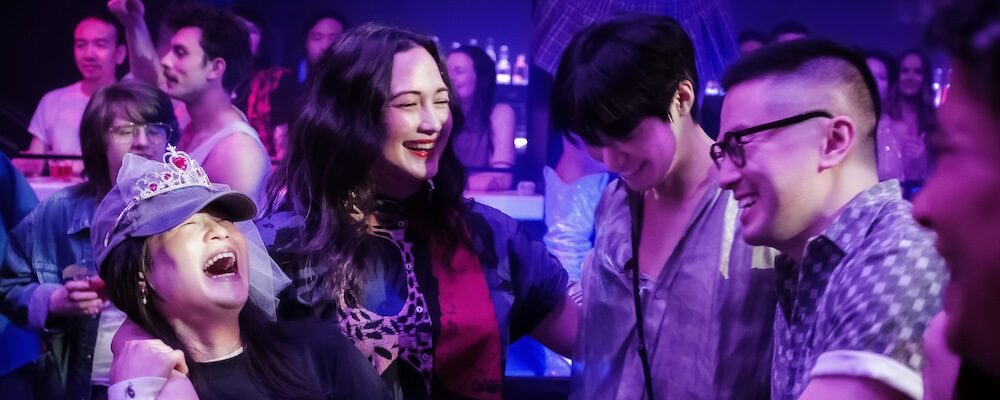Andrew Ahn’s ‘The Wedding Banquet’ Reimagines Ang Lee’s Classic With Refreshed Relevance
Alci Rengifo
There is a unique amount of risk in Andrew Ahn’s “The Wedding Banquet.” The task is to reimagine a story first told by Ang Lee in his classic 1993 original, which became an indie hit tackling homophobia, Asian American culture and even bits of broader Chinese history. At the time it was unique in the way it explored not only gay relationships, but the topics of marriage and immigration. Much has changed since then, even if we’re sadly regressing on some fronts. Ahn’s approach is smart in not attempting a copy and paste method to the plot. This is a new story tailored for our time, touching on new themes while bringing back older ones that remain relevant. It’s also a lot of fun.
This time around the story centers on two gay couples in Seattle. Angela (Kelly Marie Tran) and her partner Lee (Lily Gladstone) have been trying to have a baby but the IVF treatments on the slightly older Lee haven’t worked. With their finances getting smaller, they are not sure how many more times they can try or endure the emotional stress. Then there is Chris (Bowen Yang) and Min (Han Gi-Chan). Min is an immigrant and heir to his Korean family’s multinational corporation overseen by grandmother Ja-Young (Youn Yuh-jung). There is the added pressure of Min knowing that if he tells his family he is gay, they might just either cut off the inheritance or force him to return to South Korea. A plan is hatched where Min will do a sham marriage with Angela and in return pay for a new IVF procedure for Lee. What they don’t count on is Ja-Young deciding to travel to Seattle to assess the nuptials in person.
When Ang Lee’s film premiered in 1993 topics like AIDS and gay marriage were still dicey cultural hot topics. Winston Chao and Mitchell Lichtenstein were unforgettable as a New York gay couple who entangle themselves when Chao’s character, Wai-Tung, marries an immigrant (May Chin) before her visa expires. Wai-Tung’s parents decide to drop in from China and keeping the truth hidden about the sham marriage leads to a movingly rousing good time. Ahn wrote this new script with James Schamus, who penned the original with Lee. They intelligently update the material for a time where gay marriage is legal yet cultural taboos remain in many communities. The focus also shifts this time to the female characters, though overall everyone’s dilemmas take on an even more intimate nature. Angela struggles with being honest with Lee about her own hesitation towards parenthood, believing herself completely unfit. Min quickly proposes to Chris when grandma seems to give him an ultimatum via zoom about getting his life together. The problem is Chris is terrified of the idea of marriage for reasons he can’t articulate without looking like a total flaker.
There are also funny details within this friendship that touch on the complications of group dynamics. To their eternal, squirming awkwardness, Chris and Angela hooked up in college in what they insist was just a moment of compulsive, youthful curiosity. Then there are the great nods at queer millennial culture when grandma drops in and everyone scrambles to hide the stacks of queer DVDs, artwork and lesbian literature. Unlike the characters in the original, the four friends already live together in a house and its refurbished shed because that’s just economic reality. In general the screenplay does aim wider in its social commentary. It’s still a complicated world. Part of Angela’s insecurities stem from having a mother like May Chen (Joan Chen), a gorgeous society woman who flaunts her activism as an LGBTQ+ ally. Angela resents the self-serving egotism behind May’s public posturing. Ahn finds room in such story angles for great comedic lines, like May Chen bemoaning that her daughter is marrying a man because it can dent her public image.
May Chen may be accepting at least but Ja-Young is a reminder that in many communities it is not so easy to come out of the closet. As played by the great Youn Yuh-jung, who was acclaimed for her role as the sweet grandmother in “Minari,” Ja-Young is not some outright monster, just someone confined by her own cultural programming. She is baffled by May Chen being comfortable with having a queer daughter, which feeds into her broader confusion over other aspects of American culture. The sad irony is of course that not all of American culture is accepting of the belief in genuine equality. The two couples here are lucky to live in a place where their greater worries revolve around choices concerning children and marriage. Even then, Min can’t escape the realities of his homeland, where his grandfather is still alive and is a raging homophobe.
These are heavy topics but like the Lee film, Ahn knows how to make it lively and in the end quite the feel good experience. The wedding banquet of the title becomes a hilarious comedy of manners and tradition. Angela and Chris being forced into a series of Korean wedding customs is masterful comedy, as well as the moment they go to a courthouse to get their marriage license. A particular twist you may recall from the original is handled well with the added touch of millennial humor centered on hangovers and text messages. “The Wedding Banquet” is a charming celebration of many things, from modern Asian American life to taking silly risks that result in deeper consequences to the sheer need in any generation to be true to yourself. The cast is nothing but energy and chemistry, turning the banquet into a lesson that is eventually about what true love really means.
“The Wedding Banquet” releases April 18 in theaters nationwide.

